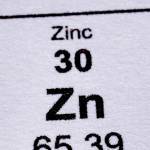Horse Feeding: Is Your Supplement Strategy Safe?

Depletion of minerals in soils worldwide impacts the mineral content in forages grown on these soils. Low mineral content in hay and grass doesn’t necessarily negatively impact horses due to the widespread availability of soil testing and dietary mineral supplementation. That said, being a little heavy-handed with the mineral supplements could sometimes cause more issues than they solve.
According to researchers at this year’s Australasian Equine Science Symposium*, there are three main reasons why owners supplement horses: (1) to improve performance; (2) to prevent a problem from occurring (e.g., laminitis); and (3) to manage a problem after it arises (e.g., degenerative joint disease or osteoarthritis).
While nutritional supplements improve the health status of countless horses, equine nutritionists suggest that some horse rations look like too much of a good thing.
“Some owners are doubling or even tripling up on certain nutrients, which may end up being detrimental to the horse,” explained Kathleen Crandell, Ph.D., an equine nutritionist with Kentucky Equine Research in Versailles, Kentucky.
Recent studies conducted in New Zealand found that commercial feeds, which are usually balanced for equine consumption when fed according to directions, are often fed with one or more mineral supplements.
“Offering mineral supplements from multiple sources can unbalance the diet and potentially cause nutrient imbalances and interactions that could negatively impact the health and performance of the horse,” shared Crandell.
Selenium, magnesium, calcium, phosphorus, copper, and iron were all identified as culprits, and owners were found supplementing these minerals in addition to offering a mineral mix and a commercial concentrate feed.
“Of specific concern, selenium can be highly toxic in small doses. Even though selenium is deficient in plants in many areas around the world, this is easily remedied by feeding minute amounts of the mineral. Selenium is a common mineral additive found in commercial concentrate feeds. Doubling up is not a huge concern, but if supplementation approaches five to ten times the recommended daily allowance it can start to cause some toxicity problems,” Crandell noted.
To maximize horse health and performance while saving money on supplements, be sure to assess all the ingredients in all the feeds and supplements offered to your horses. If in doubt, consult with an equine nutritionist.
*Gee, E.K., C.W. Rogers, and C.F. Bolwell. What mineral supplements do owners feed their horses? Proceedings of the Australasian Equine Science Symposium. Volume 6.








